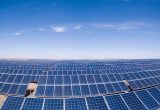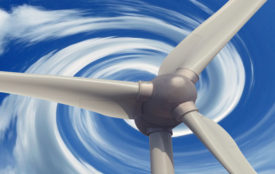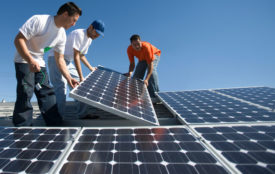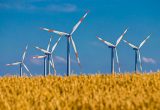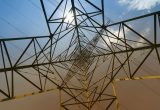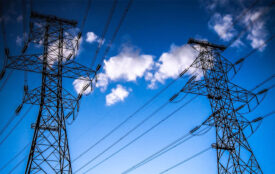Tokyo: 15th World Wind Energy Conference
Concentrating Efforts for Wind Power Generation in Japan and Worldwide
The World Wind Energy Association and the Tokyo WWEC2016 Organising Committee welcome the presence of those 500 participants from 33 countries attending this Conference, from wind and all other renewable energy technologies.
The Conference covered all aspects of wind utilisation, science and technology, related policies, manufacturing, development, operation, community involvement as well as other economic and social issues.
The Conference appreciates the support of the governments and governmental as well as non-governmental organisations, especially the Government of Japan, including the Ministry of Economy, Trade and Industry, the Ministry of the Environment, the Ministry of Land, Infrastructure, Transport and Tourism, the German Federal Ministry for Economic Affairs & Energy, the Tokyo Metropolitan Government Bureau of Environment, the International Renewable Energy Agency IRENA, the International Renewable Energy Alliance, REN21, the Global 100% Renewable Energy Campaign, the World Future Council, and all organisations and individuals enhancing the Conference.
Emphasis has been placed on the education, understanding, and support by communities in the developing world in relation to the benefits and operation of renewable energy systems, and for the industrialised world to enable this to be achieved. The importance of renewable energy access to the people of the developing world was overwhelmingly acknowledged.
Another aspect of community involvement which received attention was the relationship between educated understanding and community reaction to the introduction of wind generation in their immediate vicinity. The psychology of community reaction to the establishment of wind farms was discussed with further beneficial research being outlined. Community involvement and community ownership seem to be important tools in this respect.
The Conference recognizes that Japan is currently heavily dependent on fossil fuel combustion. The Conference applauds the Japanese government for its 22 % renewable energy target for 2030 and encourages the Japanese government to take further steps to achieve it and in due course go beyond it. Conference delegates and organizations represented at the Conference have offered support and assistance particularly in relation to realizing the huge wind resource potential of Japan, both onshore and offshore.
The Conference appreciates the opportunities provided by the UBA and IRENA side events and expresses its gratitude to the organizers and participants. The launch of the Innovation Outlook Offshore Wind by IRENA during the side event was a highlight of the Conference which has a special significance for offshore development worldwide and in particular for the Japanese participants who are further exploring the potential of offshore wind generation for Japan.
The significance to the world of the agreement reached at the Paris UN Climate Change Conference was noted by many speakers as was the fact that it will become binding two days after the conclusion of this Conference. The Paris Agreement paves the way for a 100 % renewable energy future for the world. We look forward to the remaining nations to complete their ratification and we call on all governments to accelerate their implementation programme and remove barriers on the way to a renewable energy future.
The Conference applauds the making of the World Wind Energy Award 2016 to the 195 governments plus the European Union which have participated in achieving the paradigm changing Paris Agreement as well as the World Wind Energy Honorary Award for Prof. Dr. Izumi Ushiyama for his role as pioneer and leading scientist in the development of wind power in Japan and worldwide.
In addition the Conference supports the following objectives, policies and actions, some of them having been presented at previous WWECs:
- Remove gradually all energy subsidies and introduce the internalisation of all externalities to achieve a level playing field;
- Continue the development of appropriate investment incentives for all types of investors and include incentives for a smart renewable power supply;
- Focus on the integration of wind power into existing power systems also on the local and community level, create smart grids and enhance decentralised synergies between the various renewable energy technologies in order to achieve an integrated 100 % renewable energy supply in the foreseeable future;
- Continue the close cooperation with IRENA on the implementation of its work programme and contribute to its further refinement;
- Raise the political and social awareness on all levels of society and in particular amongst local communities and enable them to obtain access to the necessary knowledge, technologies and systems;
- Create a stronger focus on community power and distributed energy supply within the existing governmental, international, education, research and financial institutions;
- Reduce overall costs for energy supply by increasing the share of renewable energy power and by a stronger focus on least-cost decentralised options for 100 % renewable energy;
- Develop and expand national, regional and international financing mechanisms for renewable energy;
- Support communities especially in developing countries in obtaining easier access to technology and finance;
- Recognise the importance of the concentration on the role of science and technology in achieving rapid development of renewable energy both past and ongoing.
- Encourage all wind energy stakeholders to participate in the next World Wind Energy Conference to be held in Malmö in June 2017.

